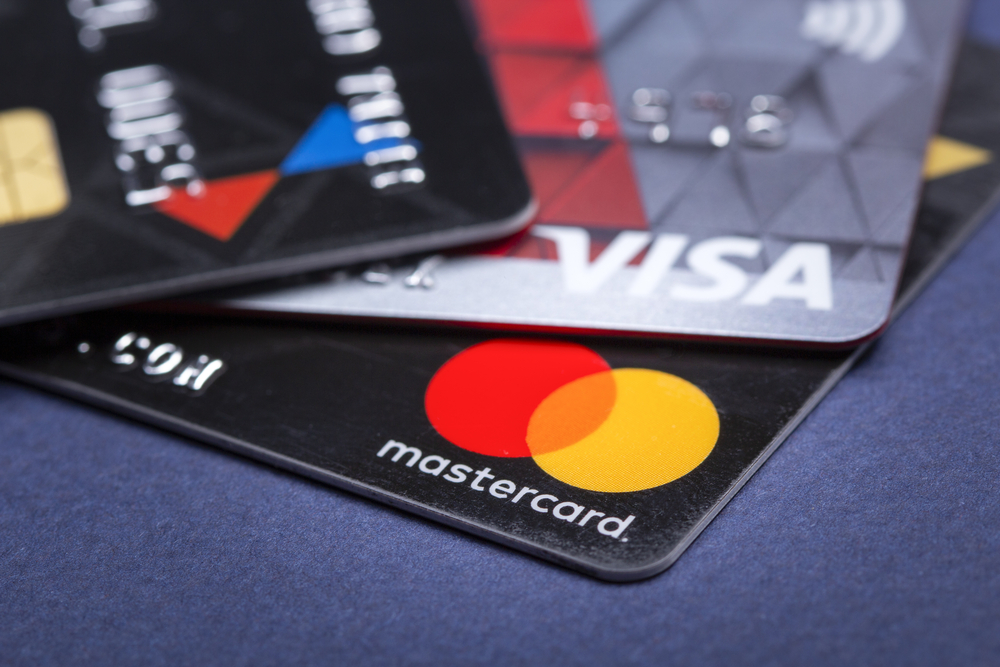
More Merchants Want Domestic Merchant Accounts. Here’s Why!
Jan 22, 2020 6-MINUTE READ
Choose domestic merchant accounts instead of offshore payment solutions.
We know what you’re thinking. Here at DirectPayNet, we often recommend offshore merchant accounts to businesses. But in certain cases, domestic merchant accounts are far easier to obtain and more beneficial. Whether you are in the US, UK, Europe or Canada, we have domestic solutions for your needs.
Some merchants consider international merchant processing in the following situations:
- When a business owner finds out they’re considered high risk and cannot easily find a local processor to accommodate their business type;
- A business has a high volume of sales and cannot find a processor that will offer the capacity they need to scale;
- When the business has a high number of declined transactions;
- A merchant wants to expand business and scale internationally; or
- When the company and owners are MATCH-listed (this is not a good solution).
Offshore merchant accounts sound like a more workable option, right? Unfortunately, going international isn’t always the best answer. Businesses that opt for foreign payment solutions might end up losing money.
Are you unsure about exploring domestic or offshore options? If so, then keep reading below. It’s worth learning and exploring more about what works (and what doesn’t) in your own region.
Merchants make the wrong choices
Do you specialize in supplements, e-cigarettes, digital products or adult content? No matter the vertical, startups and seasoned marketers are alike in some ways. They all have challenges in obtaining payment solutions. This is why startup high-risk merchants choose the “easy” route. They pursue local payment providers or third-party processors (e.g. Stripe or PayPal).
Yet, merchants make several mistakes with their application. Some demand an unrealistic monthly processing limit (e.g. USD $85,000). Others want to process high-ticket transactions over €1000, which can’t happen without certain conditions. Like big reserves requested from their processor. Or, a request to show working capital or previous payment processing history. Also, some merchants may outright refuse a domestic payment solution, because pricing isn’t as cheap as Stripe or PayPal. Often, their next move is an offshore service. Not so fast!
A solid merchant service provider will always recommend the right solution for you. Even if it’s domestic opportunities over offshore ones. It’s why successful online sellers enlist the expertise of a merchant service provider. So, do the same to avoid making unnecessary and costly mistakes.
The perks of domestic merchant accounts
There are great perks to domestic solutions. First, it ensures companies have higher transaction approval rates for local online sales.
For example, a US merchant account always converts more sales from US customers compared to other jurisdictions. The main reason is that foreign businesses have a tougher time approving US debit cards. Banks in America often limit debit transactions to domestic businesses as a fraud prevention tool.
Also, imagine if there is an issue with a merchant account. It is easier to contact a provider for help. Time zones and language make it easier to communicate. Furthermore, when you land a good merchant account provider, you are also working with a trusted acquiring bank.
Staying local helps you have a better grasp on regulatory issues. There’s easier recourse should an issue with a customer or your payment provider occur.
Payment providers charge a premium for a high-risk merchant account. This is even the case if you are going offshore. For some foreign merchant account providers, the bigger the business risk and liability, the greater the possibility of higher payment fees. There’s potential of increased chargebacks and disputes, too. That’s because your customer’s bank may be more likely to issue a chargeback for a foreign transaction.
Some experienced merchants have multiple domestic and offshore payment providers. They’re seasoned entrepreneurs, so they ensure their business can scale effectively without bottlenecks or changes in policies from certain providers. But that formula doesn’t necessarily work for everyone.
Advantages of securing a domestic merchant account
Here’s a few advantages of sticking with domestic merchant processing:
- Sometimes less paperwork is required, particularly in the US and Canada if you are also a resident in the country.
- Quick and easy processing times for credit and debit transactions.
- Lower chargebacks as your customers’ bank is more likely to issue a chargeback for a foreign transaction.
- Better conversion rates with local customers. Conversions are higher when charging customers from a domestic merchant account.
- Closer, more personal relationships with payment providers. Need help from your service and payment providers? They are closer to your time zone or in your country. Any language barriers and other bottlenecks are minimized.
Don’t get me wrong. Offshore solutions can provide several advantages. For instance, the ability to scale in international markets. Diversification of risk should your business type be considered high risk. But, it is always a good idea to start with at least one domestic payment solution.
The complexity of accommodating cross-border payments
A high decline in orders or flat out rejection from a processor could persuade any business owner to move to offshore. But a legitimate international setup is very involved.
First, offshore acquiring banks have lengthier approval processes, particularly in the high-risk sector. This is due to compliance. The know-your-customer phase requires more documents that are not needed if you are a local resident. Sometimes there are higher fees to accommodate business models with more risk. Additionally, a business’ transaction approval ratios may suffer.
That’s not all. Offshore providers know you’re in a high-risk industry and can’t get a domestic merchant account. As a result, they may slap on premium rates. Foreign merchants are required to incorporate in the same region or country of the offshore provider. This is necessary to be compliant with location regulations enacted by the government and card networks.
Also, it’s advised to cover any future legal issues and taxes. So, merchants are paying upwards of $2000. And, they are waiting weeks (sometimes months) to begin operating overseas. It can get costly to maintain a business structure within a foreign jurisdiction. So, unless you are processing $100,000 per month or more in revenue, an offshore setup could be time consuming.
DirectPayNet is renowned for helping companies navigate offshore applications. It makes the process easier for you. Contact us for help.
Settlement schedule and payment times
The schedules to pay out settlements vary among offshore payment providers. Typically, settlements occur once a week. They can also be up to seven days in arrears.
Domestic merchant accounts are different. An acquiring bank is likely to settle daily with a three-day delay. So, if the majority of your operations are in another country, bringing funds back to your local business will require regular wires. This also includes added fees to ensure your accounting is in order to appropriate those funds back to your local business.
Hacks for your domestic merchant account
Being a local high-risk merchant doesn’t mean your online business can’t expand. It also doesn’t mean scaling must stop due to limited payment options. You can still achieve optimal conversion rates and reduce processing costs. There are options you can consider. Here are a few suggestions.
- If you are a new business, apply for a monthly cap of USD $50,000 per month or less. In the eyes of your payment provider anything higher is unreasonable. That is unless you have significant capital or similar businesses to show you can scale. Once you have reached the limit, ask for an increase.
- Apply for alternative solutions. For US merchants, this means adding ACH or e-check processing to your payment arsenal. It’s another channel that will maximize your conversions and lower risk. The more people that select ACH at your checkout, the more room you have to process credit card orders in your merchant account.
- Don’t apply for too many domestic merchant accounts at once. We understand the need to get approved to allow debit or credit card orders. But, every application requires a credit history check. Your credit will suffer. Providers will see this and think you’re a big risk.
- Partner with providers who are familiar with your business type. That’s what we do here at DirectPayNet. We specialize in high risk and counsel companies in many verticals on best practices. A true expert will enhance your chances of an approved application.
In conclusion
To summarize, offshore solutions can be viable if you have a tenured business and are thinking of expanding internationally. You should also have the infrastructure in your company to support an offshore corporation, plus the accounting and operating expenses that come along with an offshore operation. An offshore payment solution can create additional costs. So, ensure you have enough monthly sales volume to bear the expenses for this structure.




